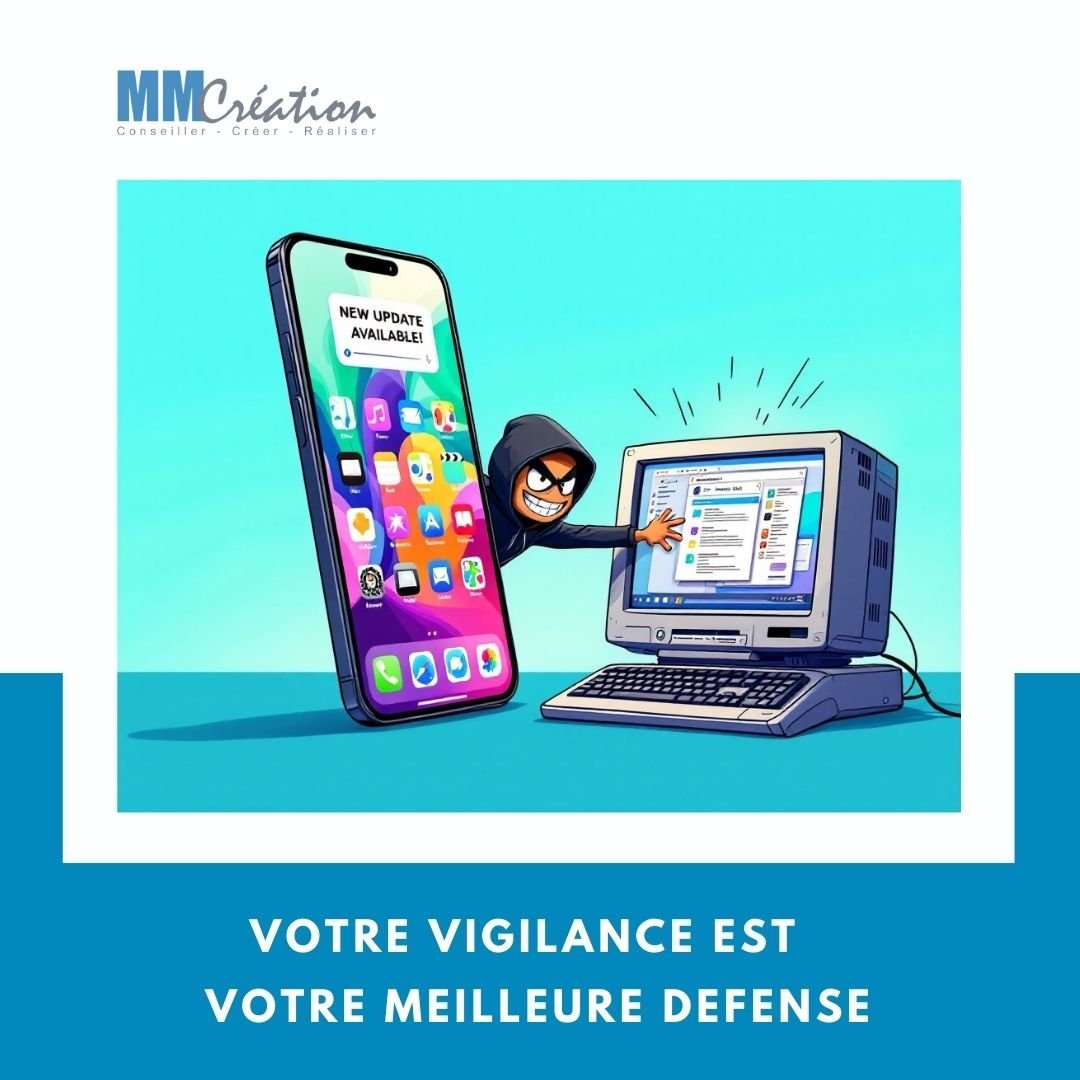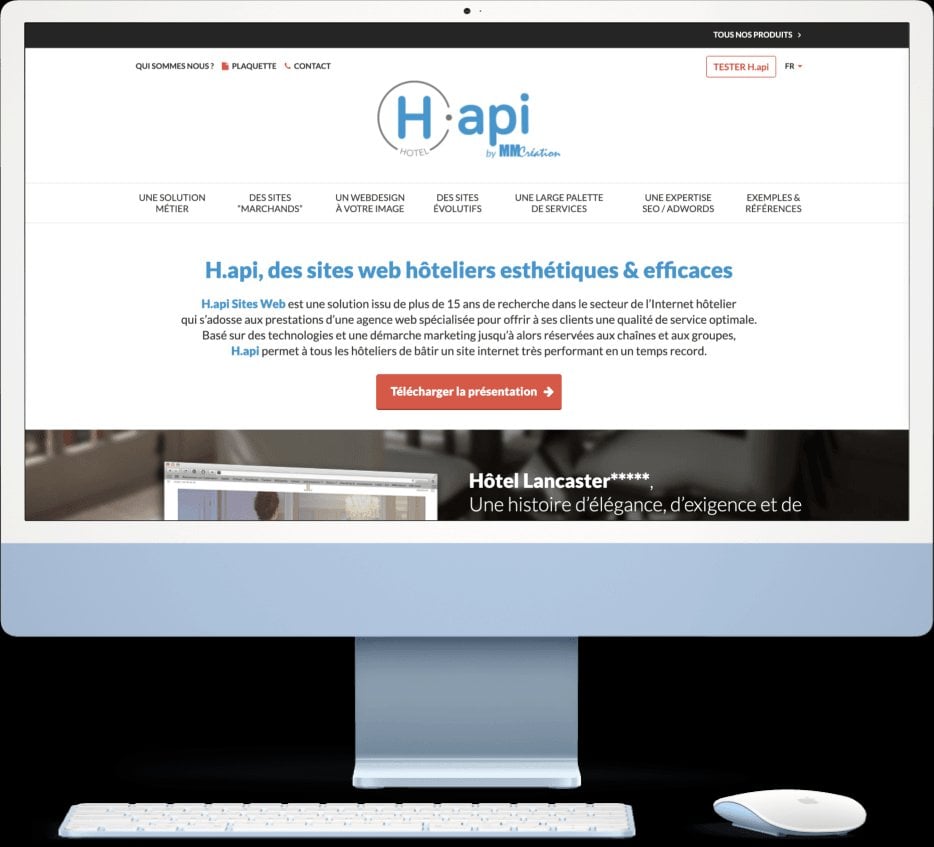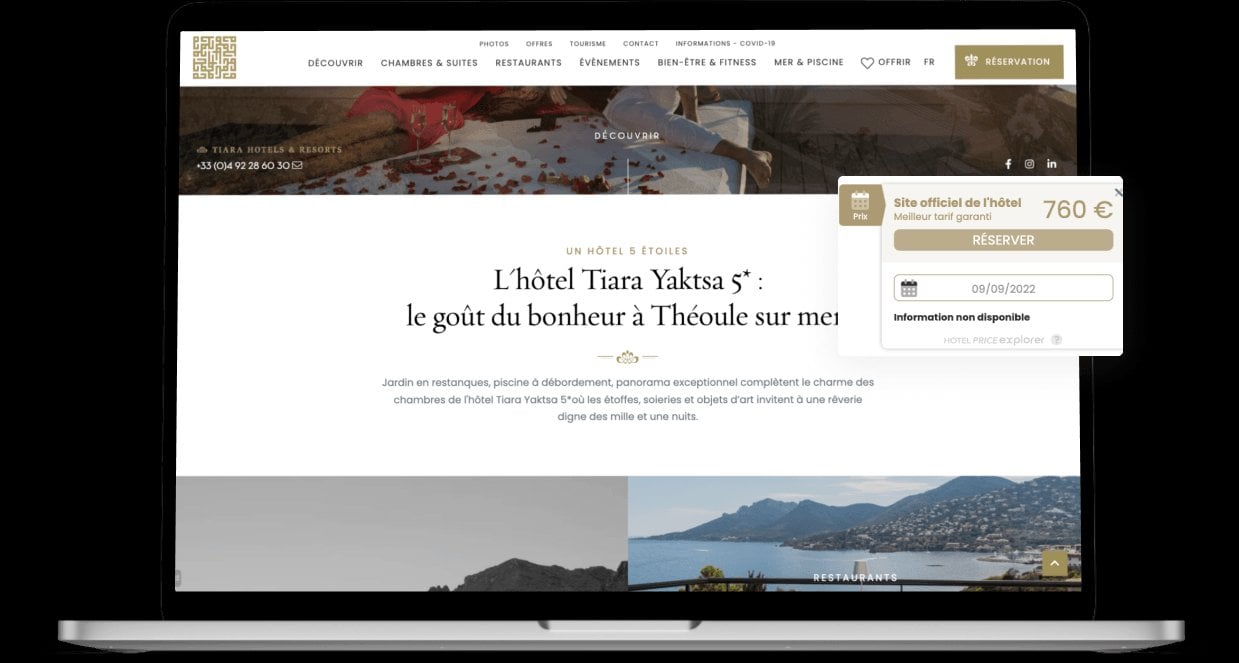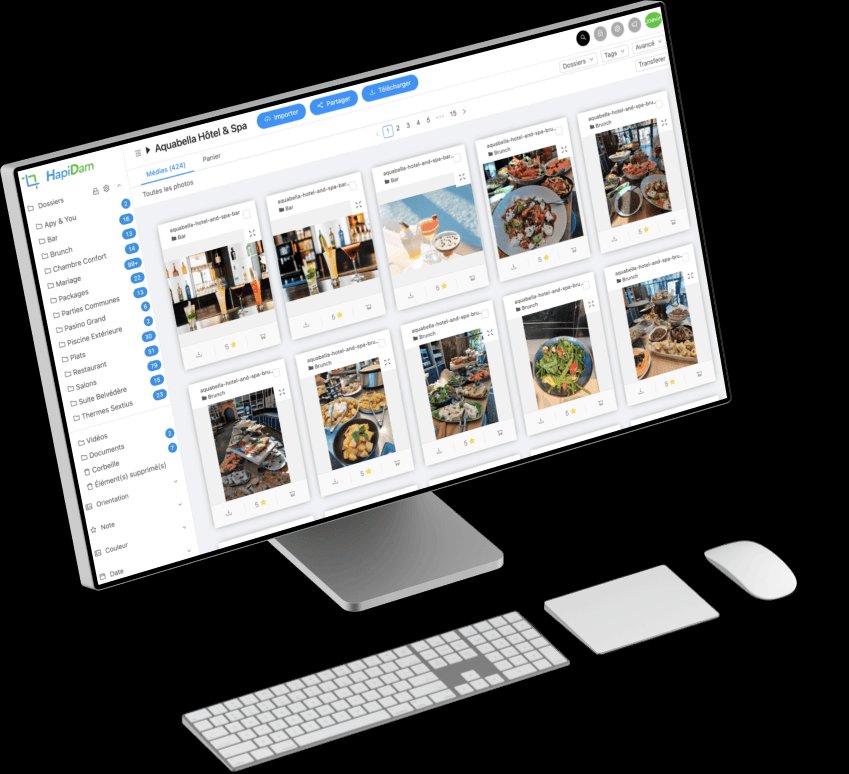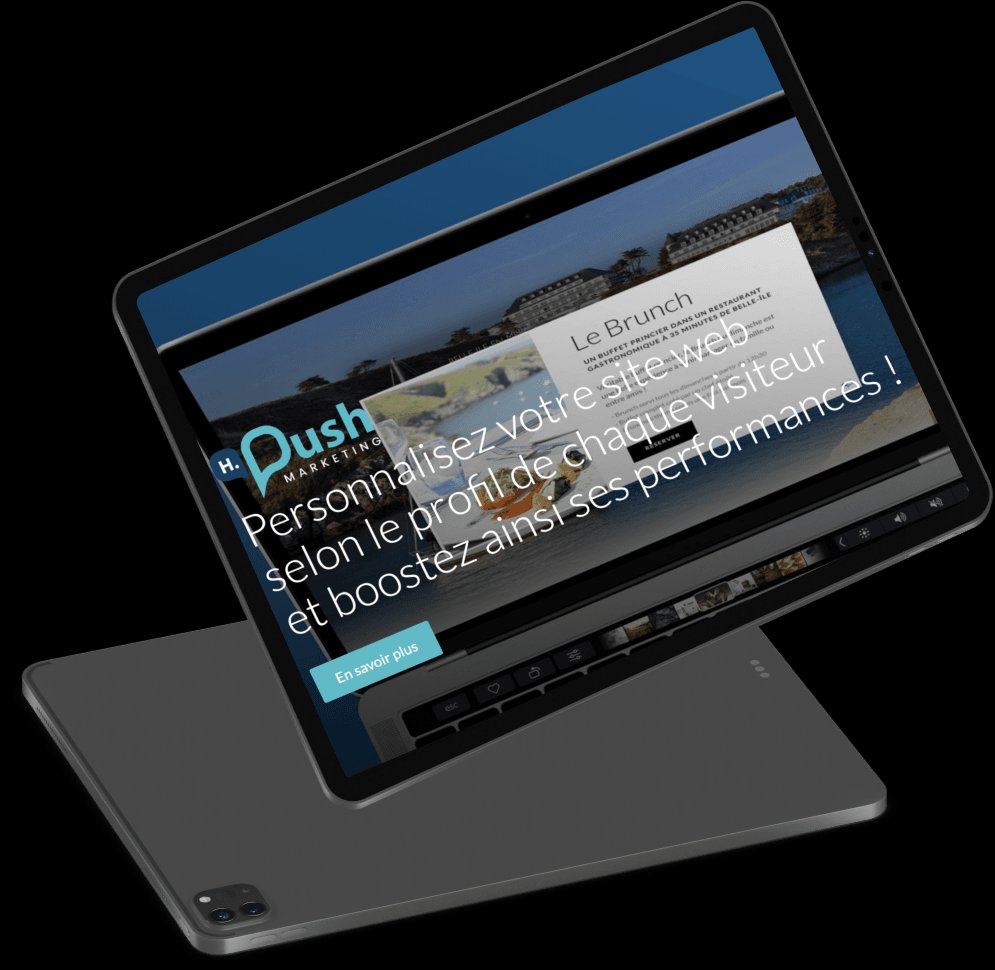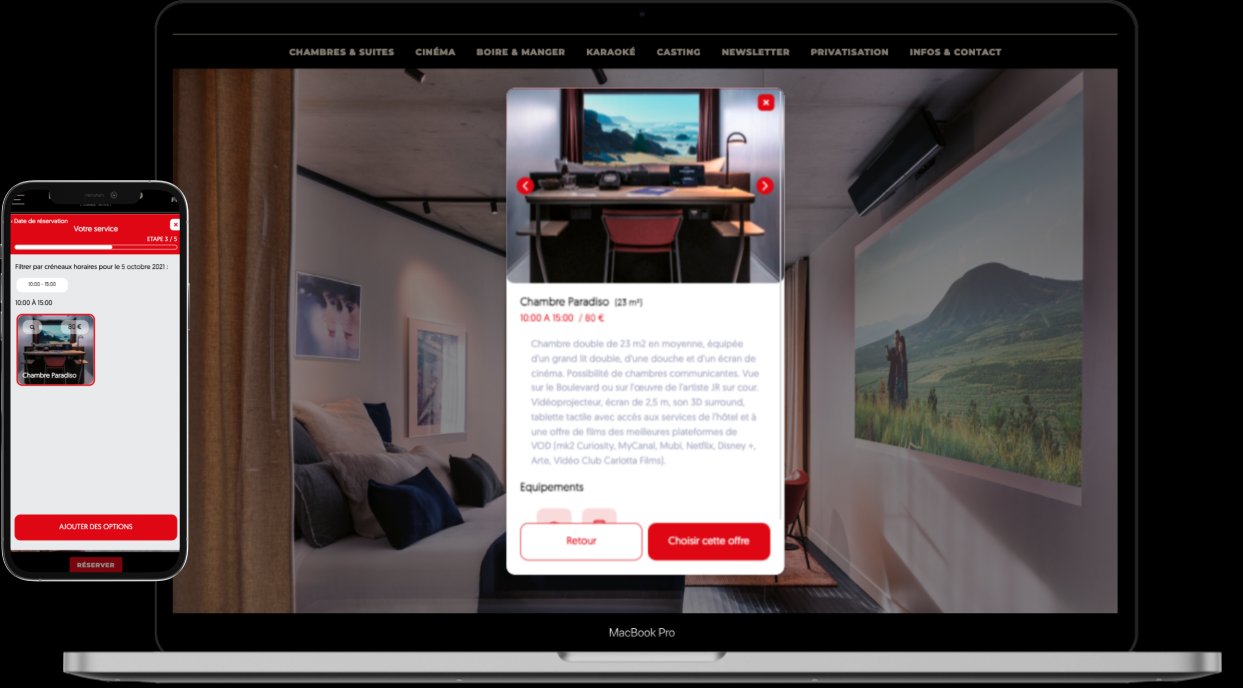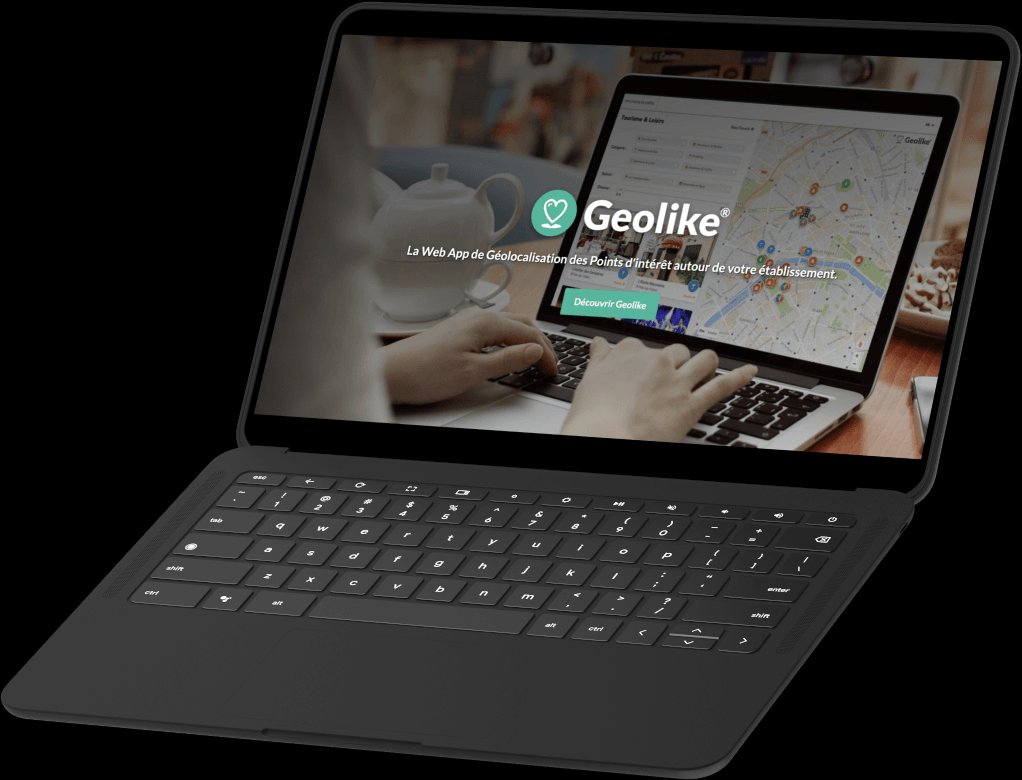Agence MMCréation • Technologie, évolution et conseil
OVH: Beware of fraudulent e-mails
Protect Your Hotel Against Online Scams (Phishing)
What is phishing?
Phishing is an online fraud practice in which cybercriminals pose as trusted entities-such as banks, service providers or businesses-with the aim of deceiving users into divulging sensitive information. This can include passwords, credit card numbers, or other personal data. Common phishing methods include misleading emails, text messages, or even fake websites that look like legitimate sites. By playing on fear or urgency, these scammers seek to manipulate their victims into acting quickly and without thinking.
A concrete example: An OVH e-mail asking you to renew your DOB
Let's imagine the following situation: you receive an email from OVH, your trusted hosting provider. The subject line reads: "Renew your domain name - OVH [manoir.net]". As a hotelier, you are familiar with this provider, which may make the message more credible. However, behind this façade lies a threat: an attempt at phishing.
Let's take a closer look at the message: it comes from a dubious address, mail88367330672@turnbeutel-vergesser.com. The text of the email informs you that you have not paid the €7.99 payment for the renewal of your domain and threatens to suspend the security of your site if payment is not made within two days. That's a bit of pressure to take action, isn't it?
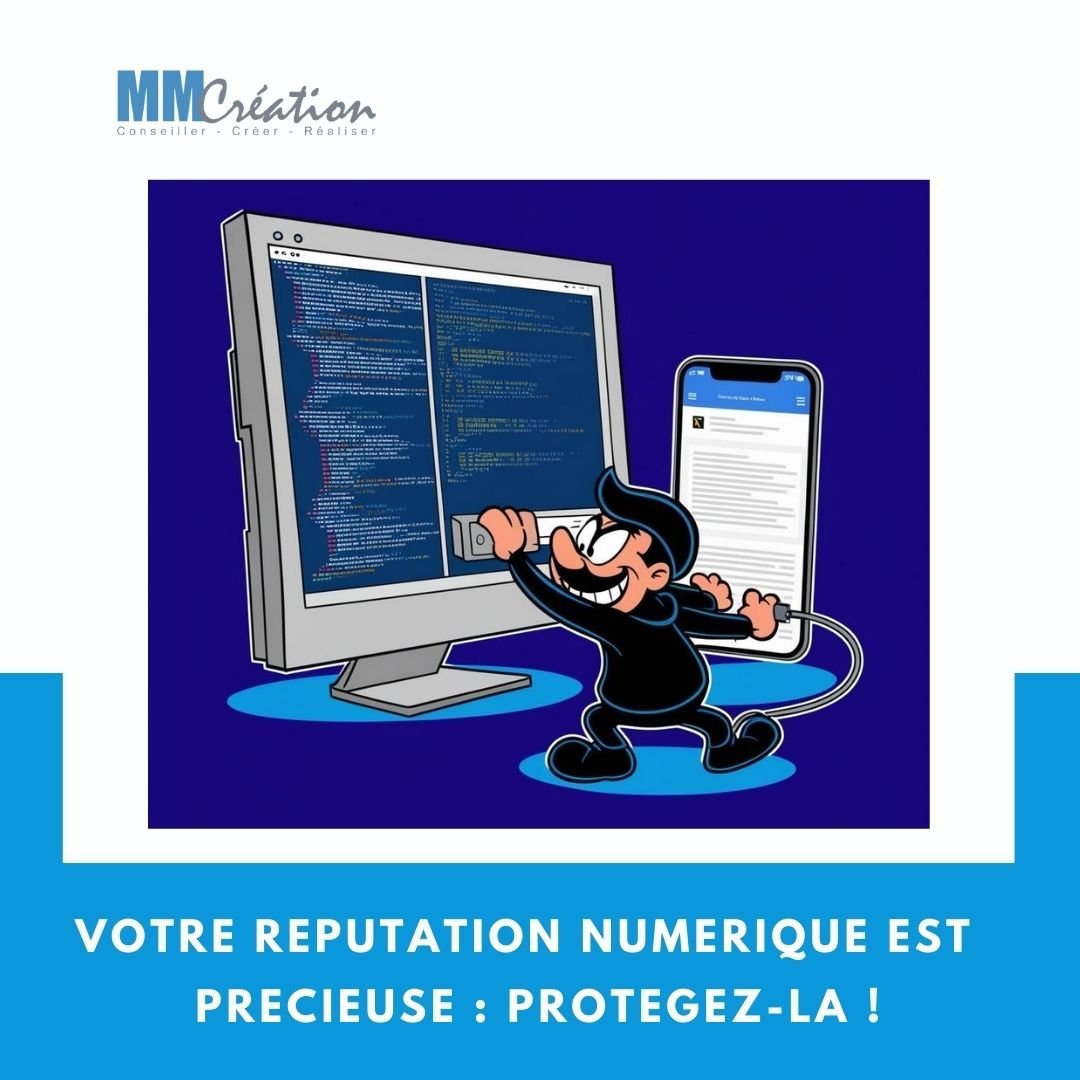 |
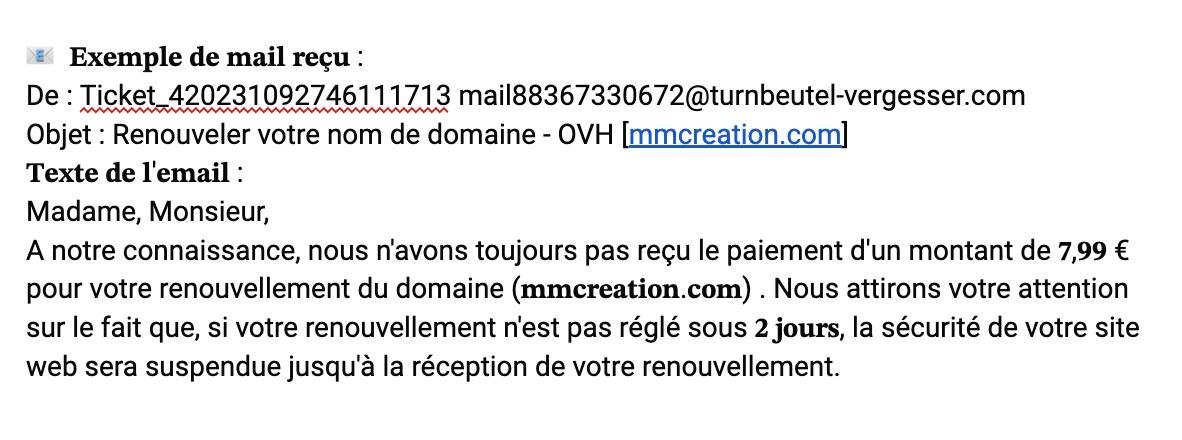 |
Let's take the Mail apart: How to protect yourself from phishing
Let's analyse a few key elements of the OVH email to understand how to protect yourself against this type of scam:
-
Sender's address: Always check the e-mail address. Unprofessional or random-looking addresses should arouse suspicion.
-
Urgency and pressure: Beware of e-mails that create a sense of urgency. Scammers know that playing on fear or urgency increases the chances of a quick, impulsive reaction.
-
Suspicious links:
Phishing in figures
Phishing is an increasingly widespread threat. In France, 60% of businesses have fallen victim to cyber attacks, and the average cost per incident can reach €176,000. In the hotel sector, where digitisation is omnipresent, these figures take on a particular resonance. Indeed, 42% of hotels have already encountered phishing attempts.
These figures underline the urgent need to take action to protect your information and that of your customers.
Another general example of phishing
Another common example could be an email claiming to be from a tax authority, requesting an audit of your financial situation. The subject line might be: "Tax information update required". This type of message could contain links and attachments designed to steal your personal information. As in the case of OVH, it is vital to check the source of the email and avoid replying or clicking on the links.
Just this morning, as I was writing this article, I received another email from one of our hotel clients.
The email address? direction@hotelname.com
So it's a familiar email at MMCréation. And yet ...
Conclusion: The importance of vigilance
The security of your hotel and that of your customers depends on your vigilance in the face of these phishing attempts. Your digital reputation is precious, and a single click can have disastrous consequences. Educate your team about these threats, put audit procedures in place and keep up to date with the latest trends in cyber security.
By remaining vigilant and informed, you can protect your business from these insidious attacks and preserve your customers' trust.
Remember, prevention is your best defence!
